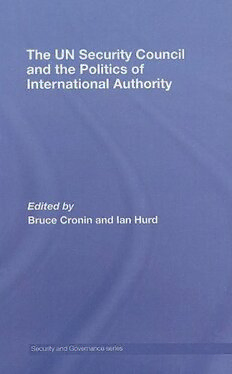
The UN Security Council and the Politics of International Authority PDF
260 Pages·2008·1.398 MB·English
Most books are stored in the elastic cloud where traffic is expensive. For this reason, we have a limit on daily download.
Preview The UN Security Council and the Politics of International Authority
Description:
Observes how the growth of the political authority of the Council challenges the basic idea that states have legal autonomy over their domestic affairs. The individual essays survey the implications that flow from these developments in the crucial policy areas of: terrorism; economic sanctions; the prosecution of war crimes; human rights; humanitarian intervention; and the use of force. In each of these areas, the evidence shows a complex and fluid relation between state sovereignty, the power of the United Nations, and the politics of international legitimation. Demonstrating how world politics has come to accommodate the contradictory institutions of international authority and international anarchy, this book makes an important contribution to how we understand and study international organizations and international law. Written by leading experts in the field, this volume will be of strong interest to students and scholars of international relations, international organizations, international law and global governance.
See more
The list of books you might like
Most books are stored in the elastic cloud where traffic is expensive. For this reason, we have a limit on daily download.
